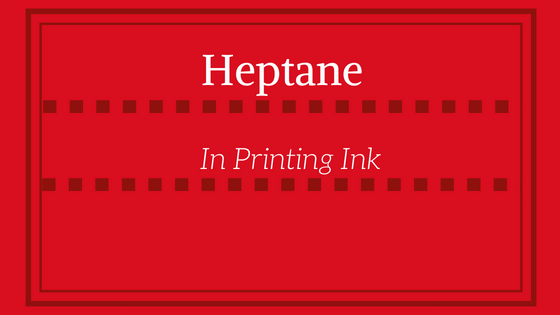Similar to chemicals such as Tripropylene Glycol Methyl Ether or Dipropylene Glycol Methyl Ether, Heptane is a product that is present in many consumer printing inks.
Solvents are often used for this purpose, especially if they have a slow evaporation rate.
Slow evaporation rates allow inks to dry slowly and last as long as possible, that is why chemicals like heptane are ideal for ink manufacturing in products like ballpoint pens, felt-tip pens, and printer ink.
Manufacturing Process
Heptane and other similar solvents are mixed with dyes during the manufacturing process to create the consumer ink that we all enjoy.
The dye that is created for the ink–whether it be printing ink or pen ink–is suspended in the solvent and they are both mixed together in large batches.
For pens, this means that the ink will be poured into an ink reservoir and attached to the body of the pen after all of the parts are created.
In the case of printer ink, cartridges must be constructed to house the ink.
The manufacturing process for printing ink depends on the type of printing ink that is being produced.
Ink for conventional printing involves a mechanical plate using the ink to transfer an image to the object being printed on, and digital non-impact printing, which deals with inkjets and electrophotographic technology.
Heptane is also utilized in rotogravure printing which involves engraving the image onto a cylinder that is then used to print the image onto the paper.
Gravure printing was formerly used primarily to print newspapers, and is still used for commercial printing of magazines and postcards.
Conventional Printing and Colored Inks
Heptane is involved more directly in the process of creating colored inks.
Black inks simply require carbon black, so Heptane is not necessary for its production.
Color inks require an organic pigment to be mixed with a type of oil.
The oil utilized is typically either soybean oil or a heavy petroleum based oil.
Heptane is the ideal solvent to be used in color ink, as it can be used to extract soybean oil, and it is derived from petroleum.
Other Common Applications
Heptane is often utilized in the process of manufacturing printer ink, but it also has many other applications.
Heptane can be found in outdoor stove fuel, rubber cement, and in paint coatings.
Heptane can also be applied in anesthetics, cements, compounders, lab reagents, organic synthetics, and solvents.
Like Hexane, Heptane can also be used to extract vegetable oils and soybean oil, which is a more cost-efficient and environmentally friendly method than using mechanical presses.
Pure Hexane or Heptane is not used to extract vegetable oils, but rather a mixture of isomers that comprise commercial grade Hexane or Heptane.
If you would like to purchase Heptane, please call (800)-563-1305 or shop online here.















